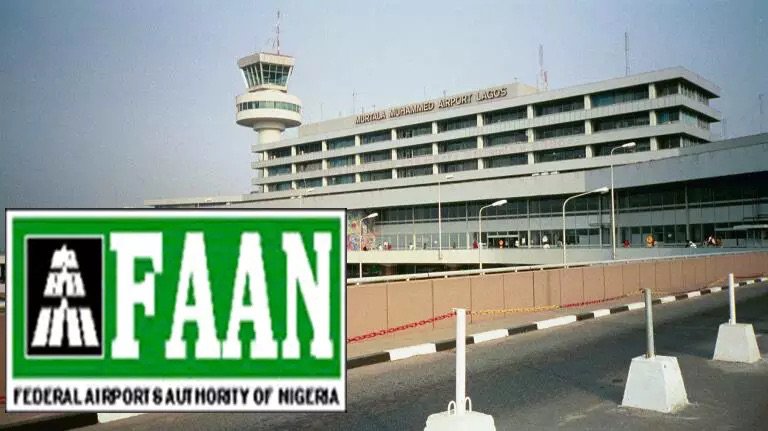- FAAN’s N100m Debt Leaves Airport Workers Without Salaries
Workers, who clean the Nnamdi Azikiwe International Airport, Abuja, complained again on Wednesday of not being paid their salaries despite promises by the concessionaire they work for and the Federal Airports Authority of Nigeria.
After an exclusive report on December 26, 2018, it was learnt that the workers, who were owed salaries for about five months at that time, got payments for two months by the concessionaire in charge of cleaning services at the NAIA – Lakewood Nigeria Limited.
Officials at Lakewood, however, told our correspondent that the part payment was done in order to ameliorate the plights of the workers, adding that the salaries were not paid completely because FAAN had failed to clear its over N100m debt to the concessionaire.
One of the affected employees said, “They (concessionaire) only paid for two months. Three months’ salaries have not been paid. We’ve not been paid October, November and December salaries. What they paid was for August and September and I want you to remember that the outstanding for the month of July has not been paid as well.
“We were told that the payment for July will come but we didn’t see it when we got payments for August and September. Right now, many of us have nothing to feed with. This is one of the busiest international airports in Nigeria and it is unfair for FAAN and Lakewood to be exposing us to unnecessary risks through the non-payment of salaries.”
But the concessionaire argued that FAAN had not been forthcoming in terms of payment for the services rendered to it at the airport by Lakewood.
A senior official of the firm stated that the airport authority owed Lakewood about N120m and that this had impacted negatively on the finances of the concessionaire and its ability to pay salaries, despite efforts being made.
The official, who pleaded not to be named in order not to be victimised, said, “We’ve been very calm with FAAN because they are our client but they’ve been owing us for several months and when they want to pay they will pay for just one or two months and say that they have paid us.
“When we complain, they will say they don’t have money, that they want to pay pensioners and come up with other excuses. They always come up with different stories. We’ve written to them, asking them to do what is right because they owe us over N100m.”
The official added, “We manage their four different airports and we’ve been delivering professional services. When they argue that they’ve paid, how much did they pay and how much do they owe? FAAN owes us over N120m. For out of about N140m, they paid N20m; is that enough to say that you’ve paid us?”
When contacted, the General Manager, Corporate Affairs, FAAN, Henrietta Yakubu, earlier told our correspondent that the authority had paid the concessionaire.
But when told that the concessionaire said Lakewood was only paid about N20m by FAAN out of about N140m owed by the authority, Yakubu replied, “I don’t have that information now. I’ll have to speak with the accounts department on this, for as I initially told you, we’ve been able to pay some money to the concessionaire.”
Last month, media reported that the workers stated that the Federal Airports Authority of Nigeria ought to intervene in the matter as the concessionaire in question works for FAAN at the Abuja airport.

 Forex3 weeks ago
Forex3 weeks ago


 Naira2 weeks ago
Naira2 weeks ago
 Billionaire Watch2 weeks ago
Billionaire Watch2 weeks ago




 Naira2 weeks ago
Naira2 weeks ago




 Naira2 weeks ago
Naira2 weeks ago




 Naira4 weeks ago
Naira4 weeks ago


 Naira7 days ago
Naira7 days ago
 Banking Sector4 weeks ago
Banking Sector4 weeks ago




















